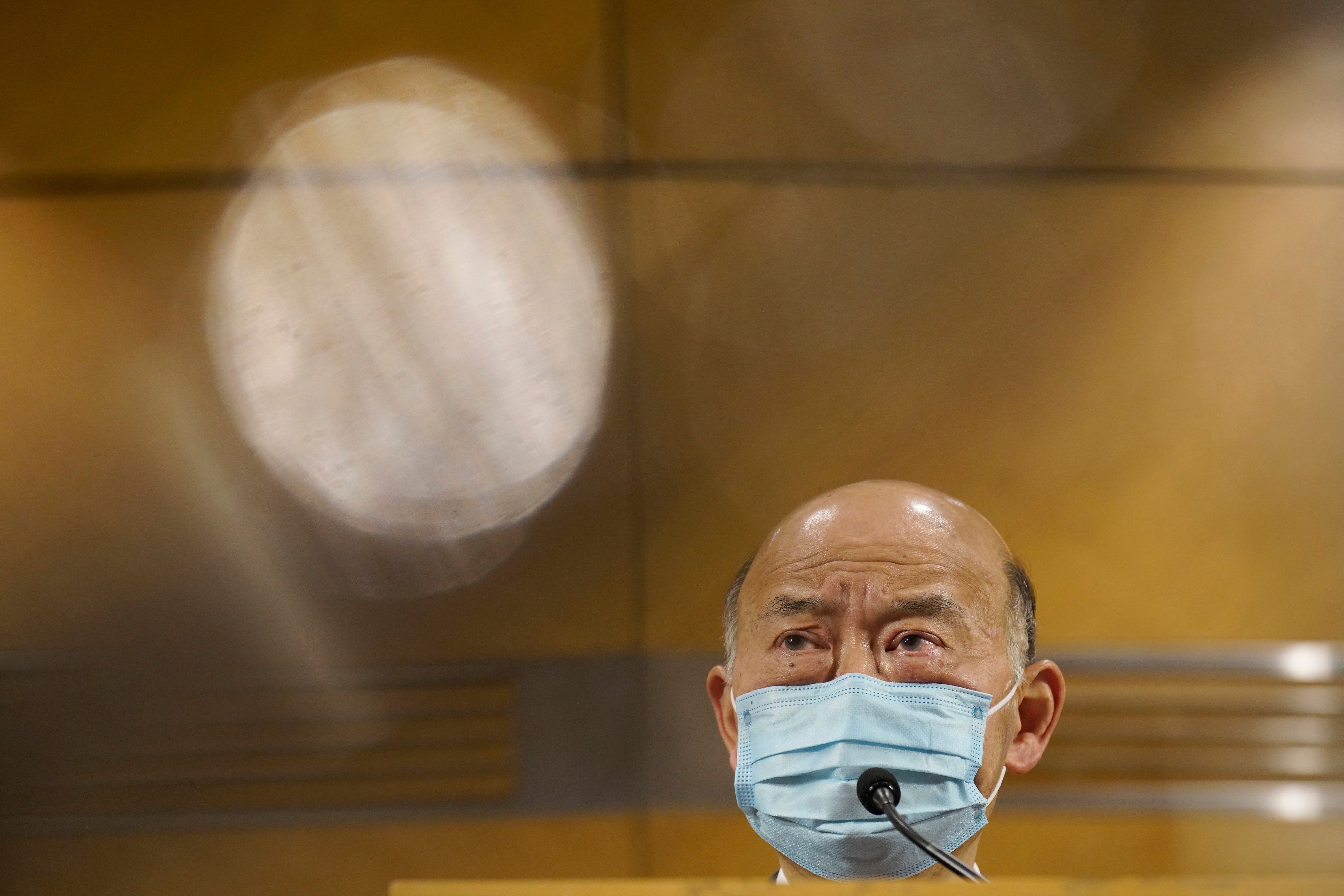Hong Kong's top judge cautious on calls for judicial reform
Hong Kong’s outgoing top judge says calls for reform of the city’s judiciary cannot be based on dissatisfaction with court rulings, as pro-Beijing figures and state-owned media step up criticism of the city’s legal system

Your support helps us to tell the story
From reproductive rights to climate change to Big Tech, The Independent is on the ground when the story is developing. Whether it's investigating the financials of Elon Musk's pro-Trump PAC or producing our latest documentary, 'The A Word', which shines a light on the American women fighting for reproductive rights, we know how important it is to parse out the facts from the messaging.
At such a critical moment in US history, we need reporters on the ground. Your donation allows us to keep sending journalists to speak to both sides of the story.
The Independent is trusted by Americans across the entire political spectrum. And unlike many other quality news outlets, we choose not to lock Americans out of our reporting and analysis with paywalls. We believe quality journalism should be available to everyone, paid for by those who can afford it.
Your support makes all the difference.Hong Kong’s outgoing top judge said Tuesday that calls for reform of the city’s judiciary cannot be based on dissatisfaction with court rulings, as pro-Beijing figures and state-owned media step up criticism of the city’s legal system.
“(The) judiciary’s position has all along been the same. If there’s any room for improvement, we will pursue it. We will consider it,” Chief Justice Geoffrey Ma said at a news conference ahead of his retirement on Sunday.
“But it’s not particularly satisfactory if there’s a call for reforms simply on the basis of a result one doesn’t like,” he said. “It is certainly not a good starting point or acceptable to say ‘I want reforms to ensure that I will always get the result which I want.’”
In recent weeks, Chinese officials and state-owned media have accused the semi-autonomous city’s courts of misinterpreting Hong Kong’s mini-constitution, the Basic Law, in rulings relating to last year's pro-democracy protests.
Hong Kong which was handed back to mainland China by the British in 1997, operates under a “one country, two systems” framework that allows it to have its own local government, judiciary and laws that are separate from those on the mainland.
Hong Kong employs a common law legal system, and its judiciary often makes judgments public in efforts to be transparent. In contrast, China’s opaque justice system has been criticized for being frequently abusive.
Hong Kong's freedoms have come under pressure as Beijing has asserted more control over the city in the past year — including implementing a sweeping national security law — following months of anti-government protests.
Last month, the state-owned newspaper People’s Daily lashed out at a Hong Kong judge’s decision to grant bail to Jimmy Lai, an outspoken pro-democracy activist and media tycoon who founded the Apple Daily newspaper. In November, Zhang Xiaoming, deputy director of the State Council’s Hong Kong and Macao Affairs Office, called for judicial reform in Hong Kong, citing a retired judge who has been highly critical of a court ruling that a ban on face masks during last year’s protests was unconstitutional.
Ma also said the judiciary is not pressured by the Hong Kong government or by Beijing to decide cases in a certain way.
“I would urge anybody who writes about the work of the judiciary to … come to views objectively, based on objective facts,” Ma said, adding that people should look at the rulings issued by the judiciary because they show the reasoning employed to arrive at a result.
Ma was among a panel of judges who last week revoked bail for Lai, who is facing charges related to national security. The panel found it was “reasonably arguable” that the previous judge’s decision to grant bail could have been erroneous.